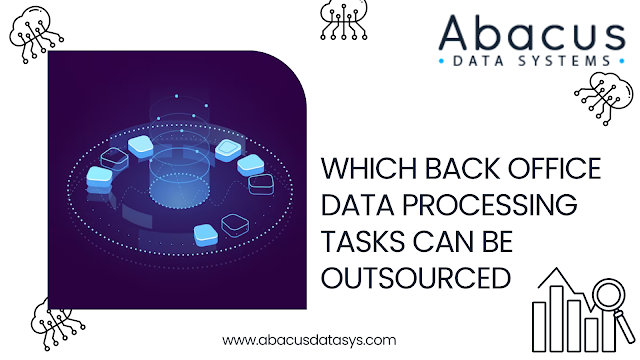Detailed Guide: What is Hybrid Mobile App Development
An excellent app you build can give your company a huge boost. A mobile app creates a new platform for users or customers to communicate with businesses. In the world of technology, hybrid mobile app development is always a major topic when discussing applications. Its popularity has increased mostly due to its ability to make it simple to create programs that run on multiple platforms.
Making an app that thrives in this industry requires hybrid app development. Today, hybrid applications make up more than half of the top iOS retail apps. In addition, mobile app development companies make significant investments in creating these apps because they can be released more quickly to the market.
Despite not being as popular as native apps, hybrid apps have some fantastic benefits worth your attention. This article will go over all the crucial information about hybrid apps and assist you in making the best choice.
Why is Hybrid App Different from a Native?
With hybrid development, you can write your application just once and then publish it to many operating systems, such as iOS and Android. It saves time for developers working on numerous projects tailored to each platform. Due to the continual addition of new capabilities to the frameworks, developing apps with a hybrid approach may be simpler.
Hybrid apps enable developers to utilize particular characteristics of particular platforms while preserving a comfortable development environment. Therefore, hybrid app development may be the best choice for you if you must simultaneously create for numerous platforms and seek a cost-effective strategy.
Enhanced UX/UI
Hybrid mobile development provides a faultless and uniform user experience on iOS and Android platforms. It's about embracing the web and adapting it for mobile. Additionally, the lightweight hybrid app UI facilitates the speedy loading of material and visuals. The apps adjust to diverse device screens to provide speedy data display and flawless data streaming.
Top Hybrid Apps Examples
Although many hybrid apps are available, only a select number stand out from the crowd. Here are some of the better instances:
Facebook: One of the most widely used hybrid apps is Facebook. Its mobile application was created with React Native to be cross-platform compatible.
Pinterest: Millions of people use the photo collection app Pinterest worldwide. The service makes the most of various devices while maintaining its codebase as simple. It does this by utilizing hybrid technology.
Spotify: This is yet another excellent illustration of how to create a hybrid application while maintaining the highest level of user experience across all platforms. More than 100 million people actively use the program, which debuted in 2008.
Uber: A ride-sharing app like this one links passengers with car-hailing drivers. It lets users pay online, track the automobile's position, and conveniently book their journeys.
Twitter: Another hybrid social networking web app is Twitter. Among other platforms, it is accessible on iOS, Android, and Windows Phones.
What Are Common Frameworks for the Development of Hybrid Mobile Apps?
Flutter
Google created the open-source framework Flutter, which employs a programming language. Flutter is a full software development kit (SDK), not just a framework.
Making an app that thrives in this industry requires hybrid app development. Today, hybrid applications make up more than half of the top iOS retail apps. In addition, mobile app development companies make significant investments in creating these apps because they can be released more quickly to the market.
Despite not being as popular as native apps, hybrid apps have some fantastic benefits worth your attention. This article will go over all the crucial information about hybrid apps and assist you in making the best choice.
What is Hybrid App Development?
Mobile app creation incorporating parts of native and web technology is called hybrid app development. Because hybrid software can have a single code base that can be utilized for various platforms, it is particularly enticing to developers. To design an app, hybrid development uses a strategy known as "write once, run everywhere." In addition, it uses many plugins to enable the functionality of unrestricted access to the mobile device.Why is Hybrid App Different from a Native?
With hybrid development, you can write your application just once and then publish it to many operating systems, such as iOS and Android. It saves time for developers working on numerous projects tailored to each platform. Due to the continual addition of new capabilities to the frameworks, developing apps with a hybrid approach may be simpler.
Hybrid apps enable developers to utilize particular characteristics of particular platforms while preserving a comfortable development environment. Therefore, hybrid app development may be the best choice for you if you must simultaneously create for numerous platforms and seek a cost-effective strategy.
Advantages of Hybrid Application Development
Using hybrid application development has several benefits. However, five primary advantages of hybrid app development technologies are listed below:Enhanced UX/UI
Hybrid mobile development provides a faultless and uniform user experience on iOS and Android platforms. It's about embracing the web and adapting it for mobile. Additionally, the lightweight hybrid app UI facilitates the speedy loading of material and visuals. The apps adjust to diverse device screens to provide speedy data display and flawless data streaming.
Offline Availability
Due to the absence of offline support, mobile applications frequently have constraints. It presents a barrier for businesses that serve clients from remote areas or locations with poor internet connectivity. According to Mobile app development services, more than half of consumers quit using an app when it takes too long to launch. This difficulty is overcome with the offline accessibility option. Therefore, users can access the app's data continuously without experiencing performance issues.Maintainability
Developers have a convenient option to easily manage their code across several platforms thanks to hybrid applications. Each app can run on a single backend, and upgrades to this backend may be distributed quickly. It lets developers shorten the development process, As they no longer need unique backends for each platform they support.Enhanced Performance
Like native apps, hybrid apps also have a high rate of speed and performance. They sometimes even outperform progressive and responsive apps in terms of speed. The lack of reliance on network connectivity is the cause. Furthermore, apps run faster on all devices, including those with a higher user base. Their performance requirements have been demonstrated with companies like Twitter and LinkedIn.Extend DevOps to Mobile
With hybrid apps, you can apply DevOps to your mobile applications. The goal of DevOps for mobile app developers is to update their mobile apps frequently throughout the day as necessary. You can go from extensive quarterly app updates to a biweekly cadence using hybrid apps.Top Hybrid Apps Examples
Although many hybrid apps are available, only a select number stand out from the crowd. Here are some of the better instances:
Facebook: One of the most widely used hybrid apps is Facebook. Its mobile application was created with React Native to be cross-platform compatible.
Pinterest: Millions of people use the photo collection app Pinterest worldwide. The service makes the most of various devices while maintaining its codebase as simple. It does this by utilizing hybrid technology.
Spotify: This is yet another excellent illustration of how to create a hybrid application while maintaining the highest level of user experience across all platforms. More than 100 million people actively use the program, which debuted in 2008.
Uber: A ride-sharing app like this one links passengers with car-hailing drivers. It lets users pay online, track the automobile's position, and conveniently book their journeys.
Twitter: Another hybrid social networking web app is Twitter. Among other platforms, it is accessible on iOS, Android, and Windows Phones.
What Are Common Frameworks for the Development of Hybrid Mobile Apps?
What Are Common Frameworks for the Development of Hybrid Mobile Apps?
Hybrid app frameworks are widely available right now. However, there are benefits and drawbacks to every framework. So, let's examine the best app development frameworks.React Native
A cross-platform framework for creating mobile apps, React Native was first made available by Facebook. With a single codebase, this open-source platform creates native apps for iOS and Android.Flutter
Google created the open-source framework Flutter, which employs a programming language. Flutter is a full software development kit (SDK), not just a framework.





Comments
Post a Comment